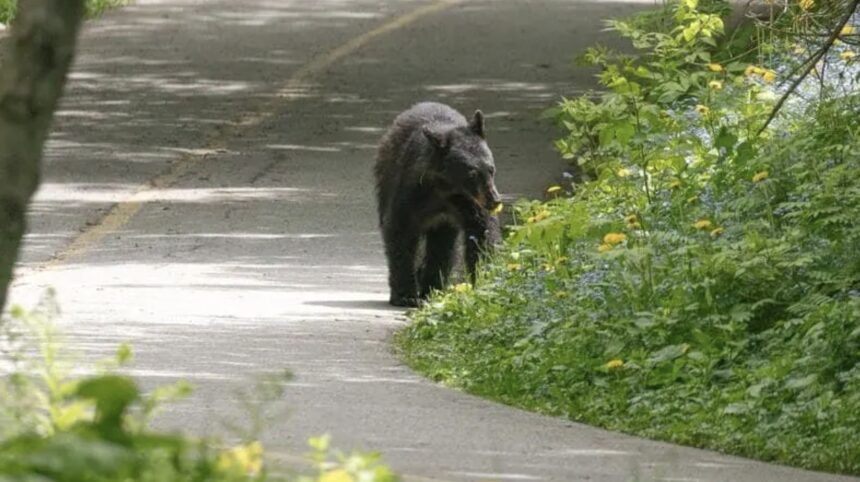In a stark reminder of the importance of wildlife awareness in resort communities, conservation officers have issued an alert after a bear successfully accessed food from a picnic table at Whistler’s popular Meadow Park. The incident, which occurred during peak recreational hours, underscores the ongoing challenges of human-wildlife coexistence in British Columbia’s mountain playgrounds.
“The bear exhibited classic food-conditioned behavior,” explained Conservation Officer Samantha Reynolds. “Once bears associate humans with easy food access, it creates dangerous situations for both wildlife and residents.”
Witnesses reported that the bear approached the picnic area with little hesitation, suggesting previous successful food-seeking encounters with humans. This concerning pattern of behavior often leads to increased bear activity in recreational zones, potentially requiring more drastic management measures if the pattern continues.
The Conservation Officer Service (COS) has ramped up patrols in the area and is working closely with the Resort Municipality of Whistler to ensure proper signage and waste management protocols are being followed. Officials are particularly concerned as summer tourism reaches its peak, bringing thousands of visitors who may be unfamiliar with proper bear safety practices.
“A fed bear is a dead bear,” Reynolds emphasized, referencing the grim reality that wildlife habituated to human food sources often cannot be rehabilitated and may ultimately be destroyed if deemed a public safety risk.
Local wildlife advocates point to this incident as evidence for strengthening Whistler’s wildlife management strategies. Sylvia Chen, director of the Whistler Wildlife Protection Society, noted: “This is precisely why we’ve been pushing for enhanced education programs for both residents and tourists. Most incidents are entirely preventable.”
The COS has issued specific guidelines for park users, including storing food securely, never leaving items unattended, and maintaining clean picnic areas. Additional recommendations include carrying bear spray while hiking and making noise on trails to avoid surprising bears.
Municipal authorities have installed additional bear-proof garbage containers throughout Meadow Park and increased signage warning visitors about proper food storage. Rangers will also conduct regular sweeps of popular picnic areas to ensure compliance with wildlife safety protocols.
This incident follows a pattern of increased bear activity throughout British Columbia’s mountain communities this summer, with wildlife experts attributing the trend to changing climate conditions affecting natural food sources and expanding human development into wildlife corridors.
As we continue to share these beautiful mountain landscapes with their original inhabitants, the question remains: How effectively can resort communities balance tourism growth with wildlife conservation, and what responsibility do visitors bear in maintaining this delicate equilibrium?

























